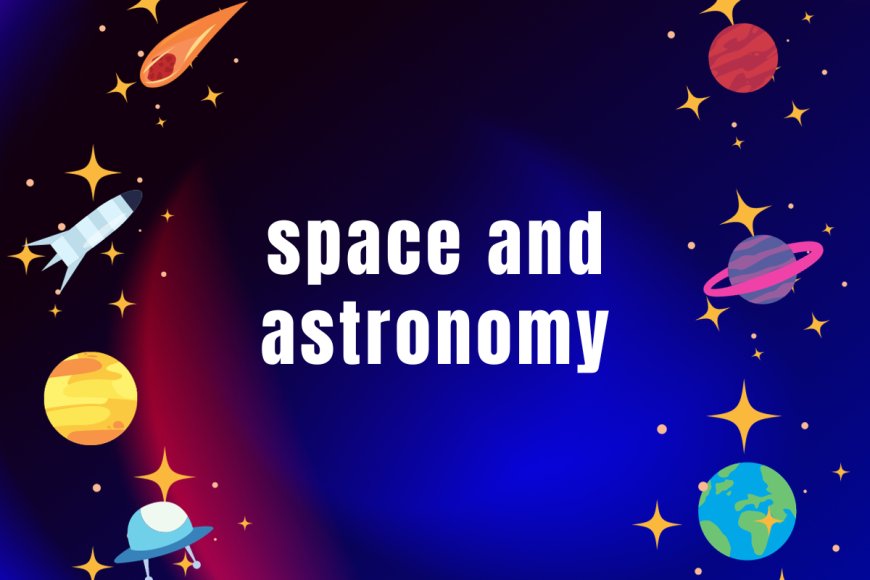Space and Astronomy: A Window to the Cosmos
Space, the final frontier, has captivated humanity for centuries. From the mysteries of distant galaxies to the intricacies of our own solar system, the realm of space and astronomy has been a subject of immense fascination and exploration.

Introduction to Space and Astronomy
Space exploration represents humanity's quest to understand the vastness beyond our planet's boundaries. It encompasses the study of celestial bodies, cosmic phenomena, and the universe's origins.
What is space exploration?
Space exploration involves the investigation of celestial objects and phenomena beyond Earth's atmosphere. It includes the use of telescopes, satellites, probes, and manned missions to study distant planets, stars, galaxies, and other cosmic entities.
The significance of astronomy in understanding the universe
Astronomy, the branch of science that examines celestial objects and phenomena, plays a pivotal role in unraveling the mysteries of the cosmos. Through observations and analysis, astronomers decipher the universe's composition, evolution, and behavior.
History of Space Exploration
The journey of space exploration is marked by significant milestones and the contributions of pioneering individuals.
Milestones in space exploration
From the launch of the first artificial satellite, Sputnik 1, by the Soviet Union in 1957 to the Apollo moon landing in 1969, humanity has achieved remarkable milestones in space exploration. These accomplishments have expanded our understanding of space and our capabilities to explore it.
Contributions of key figures
Visionaries like Galileo Galilei, Isaac Newton, and modern-day scientists, engineers, and astronauts have significantly contributed to shaping our understanding of space. Their discoveries and innovations have propelled the advancement of space exploration.
The Solar System and Beyond
Overview of the solar system
Our solar system comprises the sun, eight planets, their moons, dwarf planets, asteroids, and comets. Each celestial body holds unique characteristics and contributes to our understanding of planetary formation and dynamics.
Exploring beyond our solar system
Advancements in telescopic technology have enabled astronomers to explore exoplanets (planets orbiting other stars) and study their potential habitability. Understanding these distant worlds sheds light on the possibility of life beyond our solar system.
Astronomical Phenomena and Discoveries
Black holes, supernovas, and other cosmic events
Astronomical phenomena like black holes, supernovas, and gravitational waves continue to captivate scientists and enthusiasts alike. These phenomena offer glimpses into the extreme forces and events shaping the universe.
Notable discoveries by astronomers
From the discovery of exoplanets to the detection of gravitational waves, astronomers have made groundbreaking discoveries. These findings redefine our understanding of cosmic events and celestial objects.
The Impact of Technology on Astronomy
Evolution of technology in astronomy
Advancements in telescopes, space probes, and imaging technologies have revolutionized astronomy. From radio telescopes to space-based observatories, technology continues to unveil the secrets of the universe.
How technology aids in space exploration
Sophisticated instruments and spacecraft equipped with advanced sensors allow scientists to gather data from distant corners of the cosmos. Robotics and artificial intelligence also play crucial roles in space missions.
In conclusion, space and astronomy serve as our guides to understanding the vastness and complexity of the universe. Their significance extends far beyond scientific realms, influencing culture, technology, and our collective imagination.
What's Your Reaction?




























































































